What legendary trans elder Donna Personna’s extraordinary life teaches us about chosen family
When filmmaker Jay Bedwani glimpsed a woman in a long, red, sequinned dress at a pool party in San Francisco a decade ago, he had no idea it would be the start of a long, profound creative relationship.
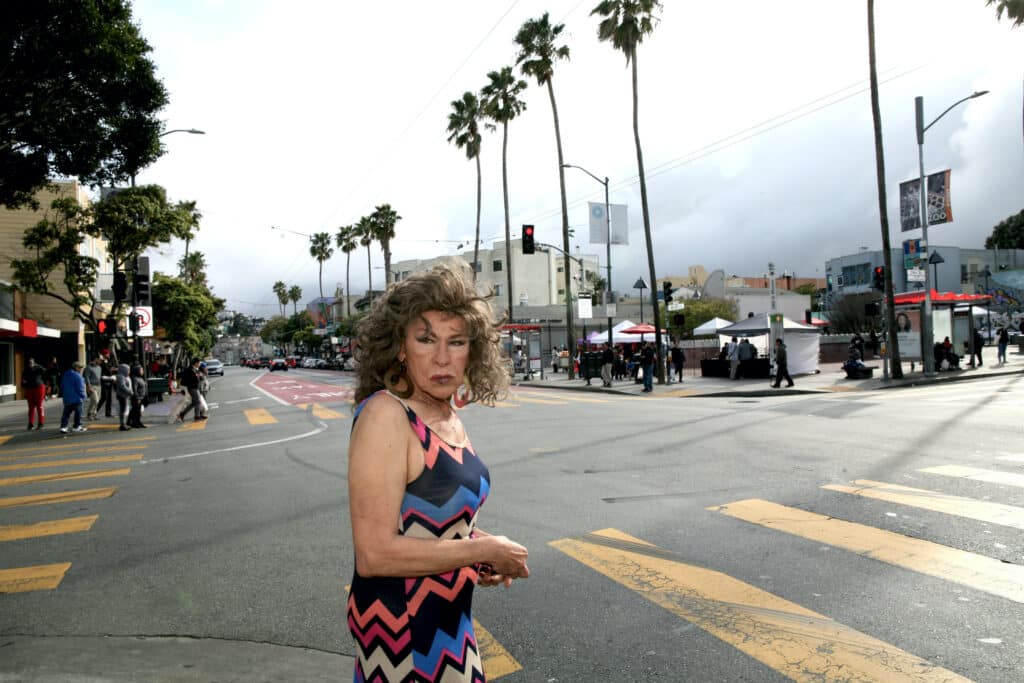
“We talked about loads of things, mainly her obsession with Marilyn Monroe,” Bedwani told PinkNews of his first meeting with the legendary Donna Personna, the subject of his new documentary, Donna.
An older transgender woman who came from a Christian family, Donna Personna found her community when she moved to San Francisco and began presenting in a way that reflected her true self. She was 59-years-old at the time.
Donna became a vocal advocate for the trans community while going on a personal journey to truly embrace her identity – a journey that inspired Bedwani to pick up his camera.
“Our common ground was family, and how she talked about her found family that she’d made in San Francisco, it just really connected with me,” he said.
“She had this amazing laugh, and I just switched my camera to record it with no real idea what I was doing. We stayed in touch and every time I’d go back to San Francisco for work, we’d hang out, go on these neighbourhood walks. And I just realised that she was just this really complex, but really fascinating character.”
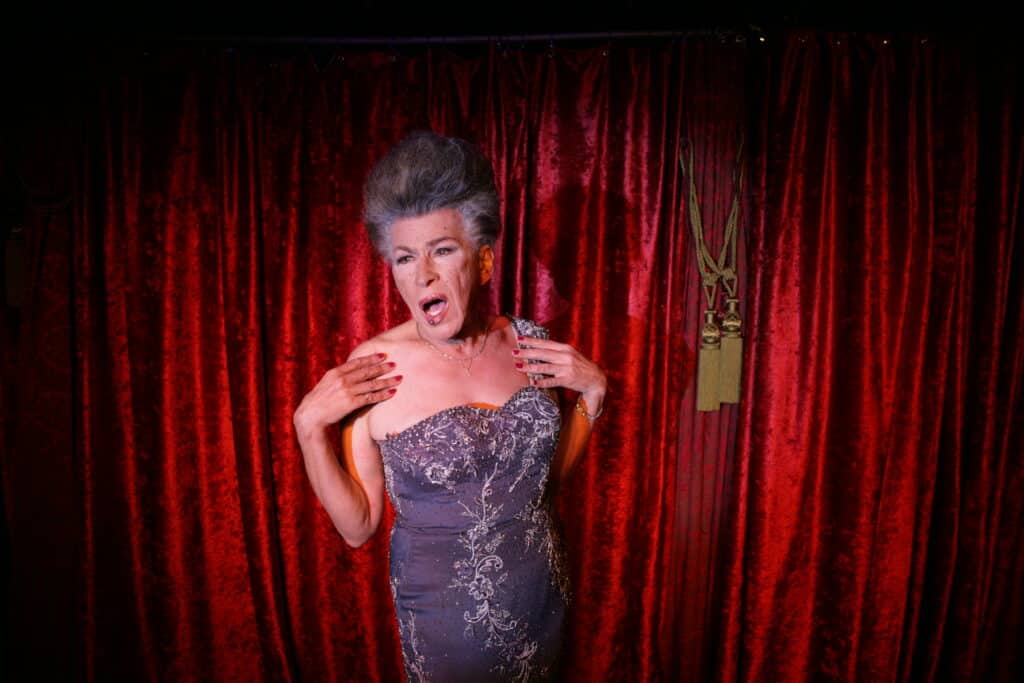
In 2013 Bedwani released his award-winning short film My Mother, which explored the bittersweet relationship between Donna and her mother, filmed in the weeks leading up to her death.
Seven years later he realised he wasn’t finished telling Donna Personna’s story, and collaborated with her again on the feature-length Donna.
The documentary begins when Donna is invited to co-write a play about the Compton’s Cafeteria riot of 1966 – an episode in history she had a connection with through people she knew.
The riot, often overlooked, is one of the first recorded acts of LGBTQ+ resistance in the US, taking place three years before the Stonewall Uprising.
Compton Cafeteria, in the Tenderloin neighbourhood of San Francisco was a popular queer spot, in particular for drag queens and trans women.
The resistance was spearheaded by a group of trans women against the ill treatment of the police and one act of protest soon sparked a riot in defence of the rights of trans people and the wider LGBTQ+ community.
In 2019 Personna served as grand marshal of San Francisco Pride, and used the position to push for the riot to take its rightful place in history.
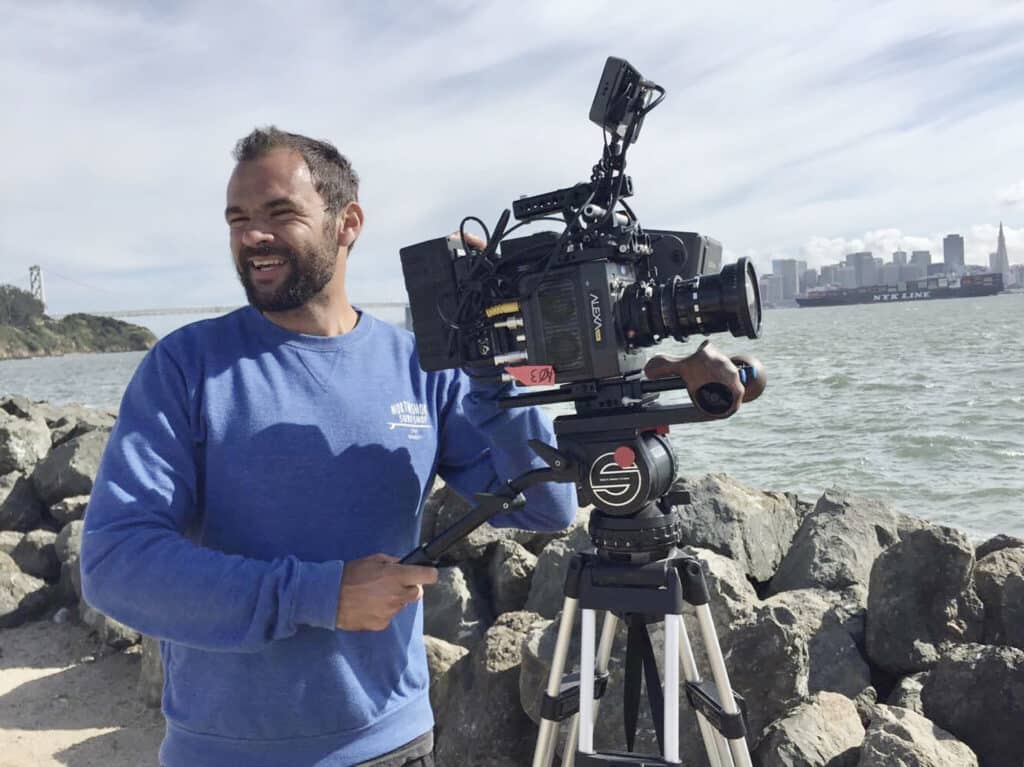
It was around this time, as Personna rallied with the trans community, that Bedwani noticed something: “It was actually a more subtle internal change in Donna that I noticed as a friend before I started the feature.
“She was becoming more politically active, supporting lots of trans youth and being very maternal, and owning her transgender identity more than she ever had. And it felt like a really good starting point.”
Donna is, in a sense, a coming of age story. The LGBTQ+ community has always had a fraught relationship with the concept, as we grapple with our identities and what that means for who we are. Although Personna is in her mid-70s, Bedwani said, “it felt like a time when she was coming into herself… and I just thought that was so fascinating in an older transgender woman”.
The Compton’s Cafeteria play soon became a central part of Donna’s life and gave her the energy to share her true self with her family, especially her sister Gloria.
“She met lots of transgender women, who I could see were really giving her strength,” Bedwani said, “and that in turn, kind of pushed her to really show who she was to her family. So that was wonderful, but fairly unexpected that the play triggered that.”
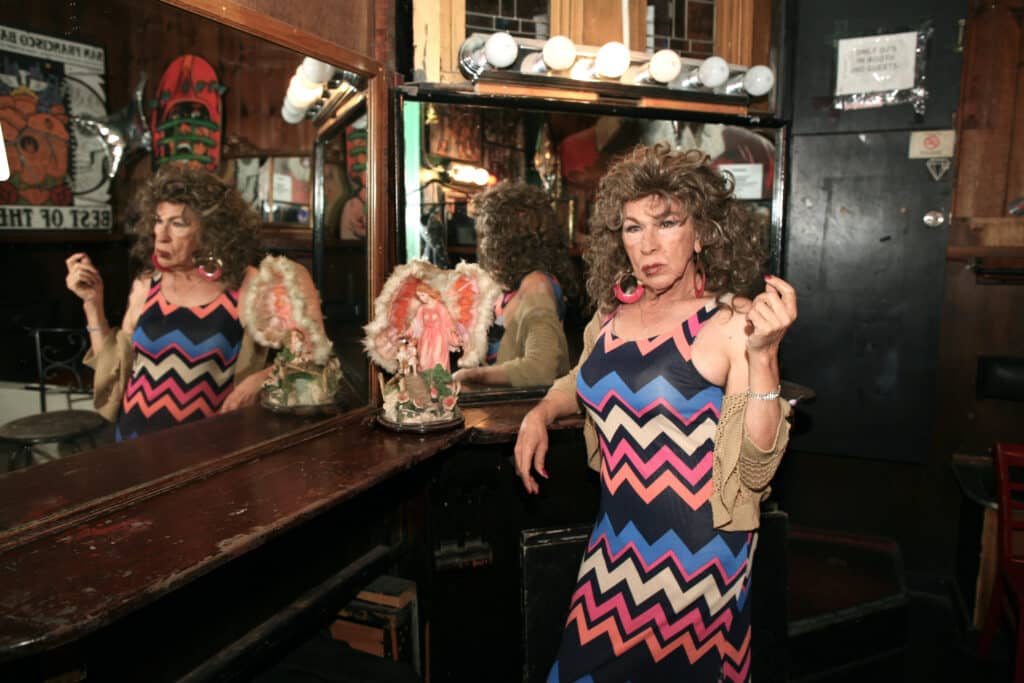
As well as the intimate moments of Donna Personna’s life, Bedwani also captured the vibrancy of the wider transgender community in San Francisco.
“I was just amazed they would allow me there and trust me to tell their story, so that was just a privilege,” he said.
“You make documentary films to learn things yourself, and I was constantly learning from them. It was also just really fun. I’d be in a bar filming and people will come up and give me a beer in one hand and were just really open to the creative process. So it was great.”
As a gay man in the creative field, he is clear on the urgent need to put more diverse stories out into the world.
“It’s really hard to see transgender men and women and youth attacked, especially politically,” he said, “and I feel as a filmmaker, and as part of the LGBTQ+ community, [there is a] need to get these stories out there.”
He added: “Donna is not necessarily an overtly political issues-based film, but just by presenting who she is, I think it serves to show people the person behind the politics.
“When I came out, actually, in San Francisco when I was 21, the transgender community were especially supportive and I feel like that love is somewhere in there, too. I have never really forgotten that.”
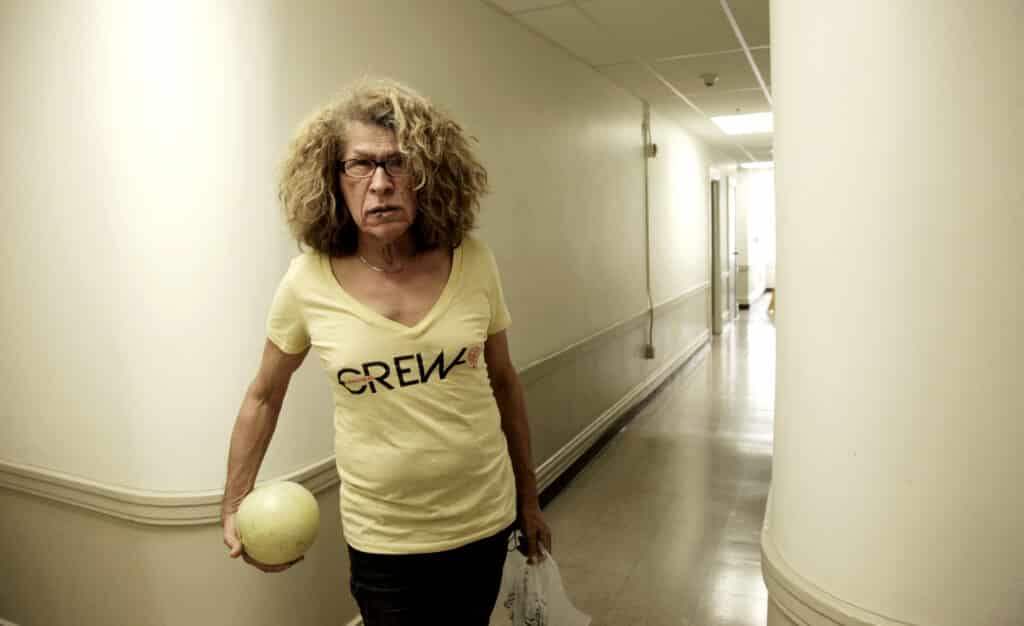
Handing over power to transgender voices was an important part of Bedwani’s process.
“I think it’s important to work as much as you can with the community you’re portraying, so for Donna, the executive producers are transgender, and I was constantly thinking about the portrayal as you don’t want to cause negative feelings.
“Especially with Donna, you hear her voice quite a lot and for me, it was really important that she had a lot of agency in the film. You really need to make sure that you’re portraying them as they are and how they see themselves,” he concluded.
Looking to the future, Bedwani wants to see the industry enabling and empowering more transgender directors.
“That’s what I’d love to see and it’s already happening, but if that happened to a greater scale, I think that would probably benefit all of us.”
Following hugely successful screenings in San Francisco and Bedwani’s hometown, Cardiff, Donna is now being rolled out in cinemas across England and Wales.
“I just really hope that audiences connect with Donna’s courage and authenticity because it really inspired me, so I hope it inspires others,” he said.
In the words of Donna Personna herself: “When you are free to be, you can be magnificent.”
Donna is in cinemas and on Bohemia Euphoria now.
